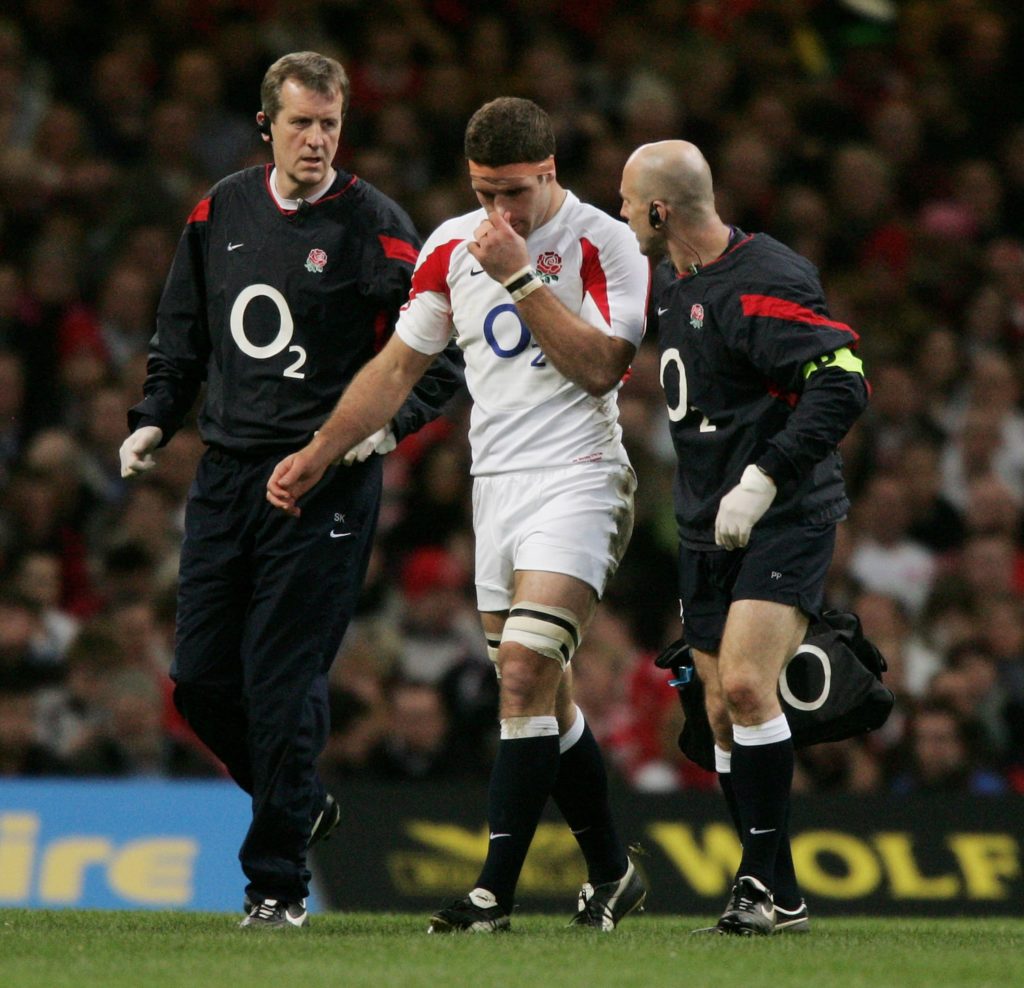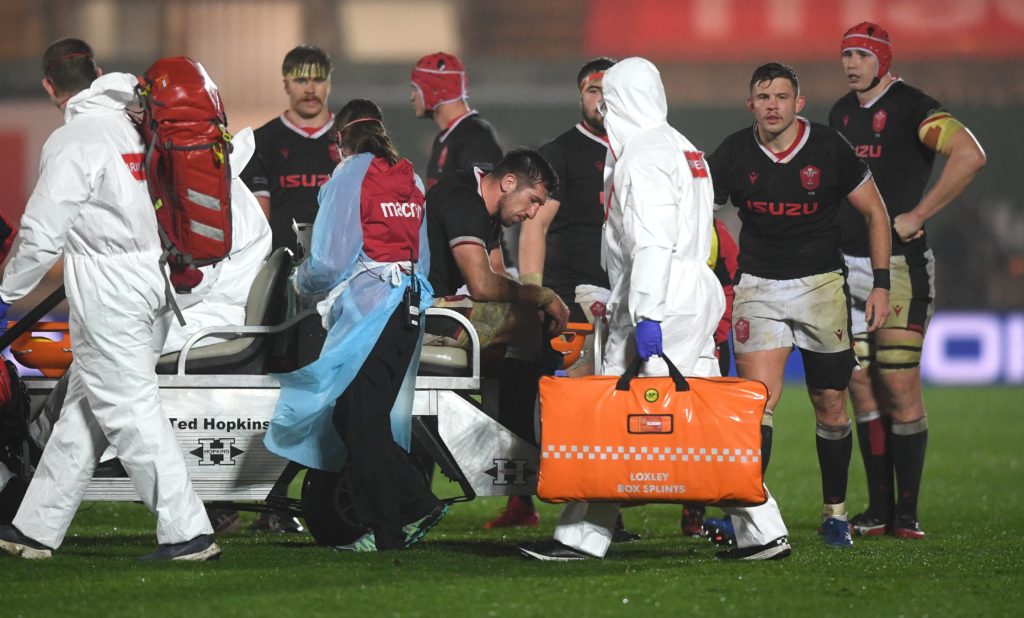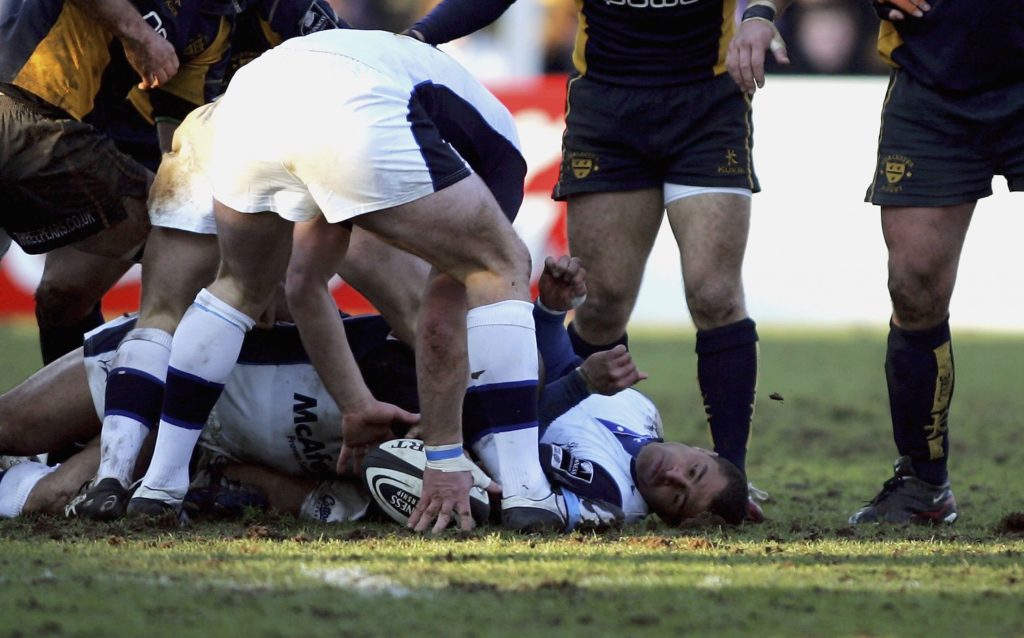Even those of us who have spent years warning that professional rugby faces a ticking time bomb of premature dementia cases found this week’s interviews with Steve Thompson and Alix Popham shocking.
For those who have spent the last decade denying and obfuscating around what may be coming down the track, the news as many as 70 ex-professionals in their 40s could have dementia caused by playing rugby will have been even harder to digest.
The truth, in its rawest form, is often difficult to swallow.
For several years it has felt like pushing a heavy cart up a very steep hill trying to tell rugby’s authorities about the obvious and undeniable dangers of allowing an already hugely physical amateur sport to morph so rapidly into a wholly more intense and brutal professional spectacle.
Once known as a contact sport where sleight of hand and evasion techniques were prized, rugby is now almost exclusively about winning the ‘collision’.
Where were the checks and balances? Where was the safety net? Thompson and Popham, along with the rest of their group bringing legal action against the sport for allegedly failing in its duty of care, have highlighted the folly of not acting more decisively.
Once known as a contact sport where sleight of hand and evasion techniques were prized, rugby is now almost exclusively about winning the ‘collision’.
Players are bigger, faster and more committed. Injuries once associated with serious road traffic accidents now routine. Many of these occur in training. The sport has changed beyond any recognition and for many, it has not changed for the better.

It is now undeniably clear we are going to see a cohort of young men and potentially women in their 40s and 50s suffering severe neurological problems over the coming years. The Thompson and Popham cases are just the tip of an unwanted iceberg. What happens next will define the very future of the sport.
I do not believe the position is irretrievable. Those talking about an existential crisis for the sport should look across the NFL and realise the sport did not cease to exist following the $765m payout to ex-players suffering dementia in 2013. In many ways the NFL is stronger now the elephant in the room can be openly discussed and addressed.
Let’s not pretend the response to Thompson and Popham’s revelations has been overly encouraging. While there has been sympathy in many quarters, resistance to perceived criticism – especially when it comes from external forces – remains fierce
But let’s also not pretend change did not occur. Strict limits on contact training and how long coaches are allowed face-to-face access to players – therefore diminishing the risk of bullying practices which still exist today – will need to be looked at in rugby. A radical reduction in game time for the top players is required to avert catastrophic damage to an entire generation of players but that can only be achieved with a radical shift in attitudes from those at the top of the sport who seemingly cannot grasp the simple concept that less can indeed be more.
And let’s not pretend the response to Thompson and Popham’s revelations has been overly encouraging. While there has been sympathy in many quarters, resistance to perceived criticism – especially when it comes from external forces – remains fierce.
To paraphrase Lord Altrincham, who argued vociferously, unpopularly but ultimately successfully for reform of the British Monarchy in the 1950s, any criticism from within is seen as an attempt to bring down the citadel down rather than an attempt to ensure the citadel survives.

The old line “they knew what they were letting themselves in for” has been parroted by some this week. It’s the same lot who scream “rugby’s gone soft” when a player is removed from the field when they are still able to walk.
But you sense this position is weakening. Rugby faces its reckoning with truth. If it is to survive it must become relevant not just to those who wish to play it, but also those who allow their children to play it.
For rugby union to stand a chance of surviving, and survive I firmly believe it will, it has to choose to listen to the growing band of dissenters who say; enough is enough. Time to decelerate. Time to reduce the impacts. Time to value and empower space, subtlety and artistry again. Time to recalibrate rugby.
Bill Beaumont was warned after suffering a series of concussions during his career that carrying on playing would leave him at significantly increased risk of long-term neurological damage. That was in 1982 when the sport was amateur.
Some current players will be giggling, mocking or even be openly hostile toward those bringing legal action against the sport’s governing bodies for failing to warn them of the risks involved but most current players are too young and lacking in life experience to be able to look past their next pay cheque or contract. And therein lies a significant part of the problem.
What are authorities truly doing enough to reduce the long-term risks of dementia associated with repeated head injuries? And, perhaps more importantly, when did they first know about the associated risks and what did they do to act? Why as the understanding of the potential long-term risks associated with concussion did the return-to-play advice around it become less conservative?
Bill Beaumont was warned after suffering a series of concussions during his career that carrying on playing would leave him at significantly increased risk of long-term neurological damage. That was in 1982 when the sport was amateur.

In the professional age, was Thompson warned? Was Popham? How many concussions are needed to say “enough is enough”? On current evidence, on that front, we are being nowhere near conservative enough with the management of concussion.
Here’s the nub; massive and repeated collisions may make good for TV but they don’t make for good brains. We need to depower professional rugby.
If we don’t, there will be many more Steve Thompsons and Alix Pophams.
How long can rugby go on living with that on its conscience?
More from Sam Peters
If you’ve enjoyed this article, please share it with friends or on social media. We rely solely on new subscribers to fund high-quality journalism and appreciate you sharing this so we can continue to grow, produce more quality content and support our writers.



Comments
Join free and tell us what you really think!
Sign up for free